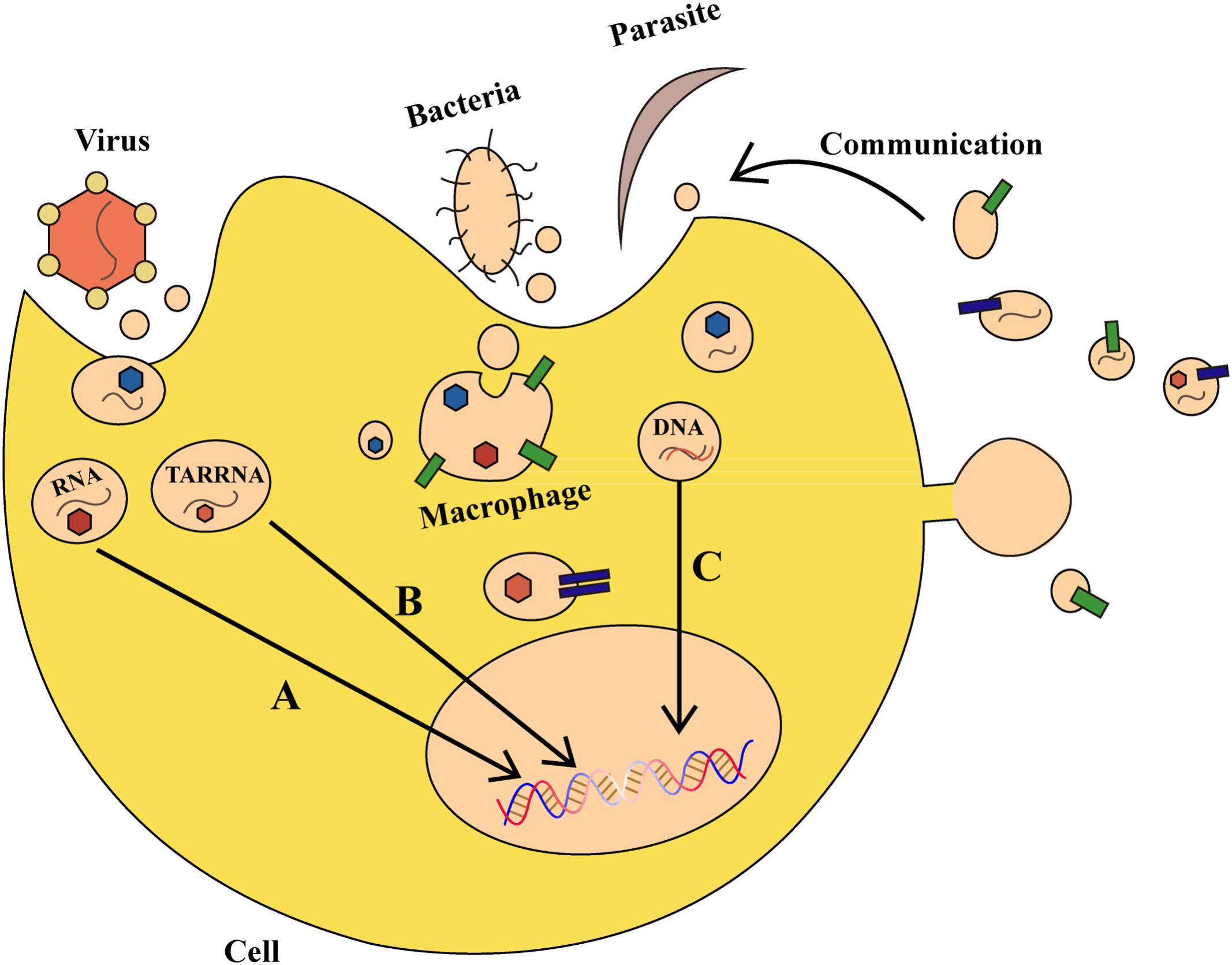Infectious Disease Therapy
Creative Biolabs has been committed to bringing together highly skilled experts with varied backgrounds applicable to exosome research and development. Based on the well-established platform, we offer full-scale exosome-related services for our clients. Here we introduce the role and application of exosomes in infectious diseases therapy.
Roles of Exosomes in Infectious Diseases
Exosomes play a very essential role in the process of infectious disease, mainly manifesting in two aspects: the communications between cells and the modulation of immune responses in the host. There are two groups of exosomes involved in infection biology, including exosomes secreted by infectious pathogens (bacteria, viruses, and fungi) and exosomes derived from the host cells infected by pathogens. The exosomes secreted by infectious pathogens contain pathogen-associated molecular patterns such as virulence factors that can be used to stimulate an immune response, and adhesion molecules that are essential for pathogens colonization in host tissues. The exosomes derived from host cells infected by pathogens are involved in the modulation of immune responses in the host.
 Fig.1 The role of exosomes in bacterial, parasitic, or viral infections.1,2
Fig.1 The role of exosomes in bacterial, parasitic, or viral infections.1,2
Exosome Applications in Infectious Diseases Therapy
In view of exosomes in the process of viral infection, interfering with the secretion of exosomes or the ability of viruses to affect the packaging of exosomes seems to be the most promising approach for treatment centered on exosomes. Furthermore, with the recognition of engineered exosomes in tumor treatment, engineered exosomes may also serve as effective tools for the treatment of infectious disease. Modification of the contents of exosomes produced by cells is most likely a promising approach in anti-infection therapy. For example, it is possible for using transgenic cells to produce custom-packaged, stable, and effective exosomes to treat infectious diseases. Interestingly, exosomes from immune cells that can be modified with a pathogenic microorganism may be responsible for anti-infectious agents. Dendritic cell-derived exosomes pulsed with Toxoplasma gondii antigen lead to a systemic Th1-biased specific immune response, thus preventing toxoplasma infection in mice. Moreover, exosomes derived from lethal P. yoelii-infected reticulocytes are involved in immune modulation, resulting in a significant decrease in the course of parasitemia.
With the years of experience in exosome research, Creative Biolabs has been enriched in exosome isolation, purification, characterization, quantification, profiling, etc. We are very confident to provide the best and all-around exosome-related services for customers from all around the world. Exosome Engineering Service is one of our distinctive items that allows loading cargo such as proteins, nucleic acids, and some small molecules into exosomes.
If you are interested in exosome engineering, please feel free to contact us for more details.
References
-
Wang, J.; et al. Exosomes: a novel strategy for treatment and prevention of diseases. Frontiers in Pharmacology. 2017, 8.
-
under Open Access license CC BY 4.0, without modification.
For Research Use Only. Cannot be used by patients.
Related Services:

 Fig.1 The role of exosomes in bacterial, parasitic, or viral infections.1,2
Fig.1 The role of exosomes in bacterial, parasitic, or viral infections.1,2









